[OLD] Scrying the Orb, part 1: Retooling Magic for OSR Games
(Credit: Camelot in 4 Colors, Part 2)
Let's be completely honest with ourselves: While Vancian magic is pretty easy to gamify and a solid staple of retroclones, it can get a little boring and overdone at times? So this post will aim to create a more "open" style of wizardly casting compatible with most Fantasy Adventure games.
The Basics
Let's start with the basic rules of magic that apply to every magical tradition in some form.
Spell Checks
To cast a spell, the Magic-User must a roll a Spell Check. My original rules for spell checks are found in my zine L'Grimoire Rouge, but I have revised them for a more "Complete" version.
- The Caster chooses what Spell they wish to cast
- The Referee declares the difficulty of the spell. Usually the spell's difficulty should be It's Level+14, but if the caster is under various circumstances it can be altered, as per the table below:*An item is considered to contain Spells if it can use an ability from the Spell List, such as a Wand of Fireball
- Depending on the Caster's Roll, the spell manifests differently:
- If they roll Equal or Over to the spell difficulty, the spell successfully manifests.
- If they roll a Natural 20, the Caster may choose to double one of the effects (such as doubling the range or effects dice).
- If they roll Under the difficulty, the spell fails to manifest.
- If they roll a Natural or Modified 1, the spell results in a Mishaps, and see the next section for procedures on Misfires.
After Casting a Spell, they gain the Multicast penalty, in which they gain -1 on their next Spell Check if they cast that Spell again. The penalty is set to 0 at the End of the Day.
Additionally, if a Caster fails a check, they may incur an amount of damage equal to 1d4+Spell Level. If they are destabilized (such as being shoved mid-casting), they must make a Mishap Check as per a failed # ritual (See below).
Mishaps
When a Spell Check is reduced to or is naturally rolled as a 1, a Mishap occurs. The Referee rolls a specific die as indicated by what would be considered their "maximum number of spell slots" per that spell’s level as a "Mishap Check". The table below is for mishap checks.
- 1-2 Maximum Spell Slots per Level: 1d10
- 3-4 Maximum Spell Slots per Level: 1d8
- 5-6 Maximum Spell Slots per Level: 1d6
- 7-8 Maximum Spell Slots per Level: 1d4
- 9+ Maximum or No Spell Slots per Level: 1d2
If the result comes up as a 1, then a Mutation occurs. If any other number occurs, a Misfire occurs.
A Mutation is when a spell permanently alters the Caster's form (such as a Scrying Spell giving a vestigial eye, or a Flight spell giving feathers). The mutation is usually thematic to the spell. A Misfire is when the spell manifests incorrectly (such a Fireball creating a Icy Wind or a Magic Missile being flung towards another opponent).
Learning Spells
There are 3 methods of learning spells:
- By Yourself
- From a Mentor
- Instantly from Higher Power
Regardless of method, every time an MU learns a new spells they may have to spend Spell Level x 1000XP's worth of valuables and occult materials to practice. If you fail to learn a spell, the Student may have to buy the materials again.
Learning by Yourself: To learn a spell by yourself, roll 2d6 and add the Spell's Level. This is how long it takes to learn the spell in days. Afterwards, make a Spell Check. On a success, the Spell is learnt. On a fail, the Student must learn the spell again.
Learning from a Mentor: Roll 1d8+Spell's Level, subtracting the number of Instructors teaching you the spell. This number is how many days it takes to learn the spell. See above for the further rules.
Learning Instantly: From things like eldritch knowledge, after learning the spell the Student must make a Save vs Magic/Mental Resilience. On a success, the spell is learnt. On a fail, the caster is in a state of shock for 2d6+Spell Level days, learning the spell after the days are up.
Reversed Spells and Spells of Specific Targets (such as Teleportation): All count as different spells. For example, Light and Darkness would be different spells, such as Teleport Home or Teleport to a Forest, or Polymorph into a Human or Polymorph into a Cat.
Casting from Scrolls and other Magical Texts
Divide your Prime Requisite by 3 and round down. This is the chance to instantly decipher a spell scroll or magic cypher out of d6. To read it, roll 1d6, and if the number is lower or equal to your chance, the text is deciphered. If you study for 1d6 days per spell level, you can decipher the scroll instantly. Afterwards, you can cast a spell from a scroll as if it was a normal spell check. This is also the way non-Magicians would attempt to cast a spell.
Rituals
Some spells may be cast a Ritual: A long, dangerous process. There are a few steps to cast a ritual first:
- Material Components: Rituals will usually take physical items in the ritual. A ritual will require at least 1 Material Component per spell level. There are 2 types of Material Components:
- Tools, items used to weave the magic of the ritual.
- Ingredients, items sacrificed in the ritual.
- Sacred Space-Times: Blessed spaces or times of day in which the Ritual is conducted. Under blood-moons, at the 11th hour of the night, within shrines etc.
- Trances: The process must be done with the main participant under a hallucinatory state.
A ritual takes at least 1 hour. For every person helping in the ritual, it adds 10 minutes. To cast a ritual, a Magician compares it to a Turn Undead/Unholy table (treating the spell level as the Monster's level and the collective maximum spell level of the casters involved as the player level). Depending on the table, conduct the ritual as follows:
- -: The Ritual will inherently fail.
- #: The caster must roll 2d6. If it is equal or over the number's value makes the ritual succeed, and the main caster must make a spell check. On a fail, make a Mishap Check, combining the total maximum spell slots of the casters. If a 1 occurs, a Mishap occurs.
- T: The caster must make a Spell Check.
- D: The ritual instantly succeeds after the time is up.
Depending on the type of the ritual, the 2d6 roll may be changed:
- Banishings (rituals to protect and repell powers) offer no change
- Consecrations (rituals to imbue magic into objects) and Invocations (targets to bring for powers into a target) are modified per the difference between the combined Level/HD of the casters - the Target's.
- Divinations (rituals to see forth the future or other places) are modified as per - the spell's level.
- Evocations (rituals to call forth a powers before the caster) are equal to the caster' prime requisite spell check modifier
- Purifications (rituals to change a target to a blank state) are modified as per the target's magical save bonus.
As well, Rituals do not have a Range. Instead, depending on how well known the location of the ritual is, the 2d6 check will be modified as such:
- Unfamiliar: -2
- Somewhat Familiar: -1
- Familiar: None
- Intimately Familiar: +1
Counterspells
When another spell is cast, a Magician may attempt to Counterspell the other spell. To do so, the caster must have access to either:
- A reversed spell (such as casting Light at Darkness)
- A spell of opposing function (such as casting Protection from Evil at Magic Missile)
- A spell of thematic opposition (such as casting Hold Person at Flight)
- The same spell
To do a Counterspell, the countering Magician must do a spell check as normal. If their result is higher than the spell being countered, both spells are cancelled out and no one is harmed. If if it is equal or lower, both spells occur but are not cancelled out.
Everything else is up to a Magician's Tradition, and speaking of:
Traditions
(The Story of King Arthur and His Knights, Howard Pyle)
All magicians are trained in a Tradition, a specific way of going about magic. Each MU character starts with 1 Tradition. To learn a tradition, it takes 1d10x10 days. Afterwards, the student must make a flat d20 roll against a First Level spell's difficulty, learning on a Success. On a fail, the process repeats itself.
A tradition will determine:
- A: How spells are memorized/prepared to be cast
- B: How spells are cast
A list of example traditions is provided below.
Vancian Magic
A more "traditional" approach to Vance's magic in the dying earth, without limited spell slots. Memorizing Spells: To memorize a spell, the Caster must read a spell from a spellbook. Afterwards, they make a spell check of requisite level. On a success, they learn the spell, and incur a penalty to memorizing other spells equal to said spell's level. On a fail, their mind is overwhelmed by the force, and they cannot memorize anymore spells for the rest of the day.
Additionally, for each spell memorized, a voice appears in the caster's head. Said voice is a representation of the spell (IE a fireball spell being deadly and impulsive, a sleep spell being lethargic etc.). Each spell in the caster's head also wants to be cast, and oft will bargain with the magician to be released first.
As well, if a magician attempts to memorize a spell higher than their maximum spell level, they gain a penalty equal to the Spell’s level - their maximum spell level (for example, attempting to memorize a 6th level spell with a maximum level of 1 incurs a -5 penalty).
If the magician looses consciousness of a method other than their will (such as being clobbered upside the head), each spell they have memorized is fired out at once.
Casting Spells: To cast a spell, the magician simply states that they cast it. Afterwards, the spell is instantly cast forth.
Chaos Magic
The magic practiced by the various Sorcerers and Warlocks of the forces of entropy.
Memorizing Spells/Prepared Spells: Chaos Mages do not "learn" spells from books. They must first witness another Magic-User casting a spell. Afterwards they may attempt to cast the spell.
Casting Spells: To cast a spell, use a spell check as normal. However if they critically fail on the spell, they cannot cast it unless witnessing it again.
Sigils
Magic based on drawing symbols to evoke power. For this one I suggest reading through books of Renaissance Magic, Chaos Magick (not to be confused with the Magic above) and Fighting Game input lists.
Preparing Spells: A magician needs to draw the requisite spell's sigil onto an object while in the presents of reagents (such as incense and ink) worth 100 XP per Spell Level. Afterwards, depending on the objects type, the way it is cast is changed. As well, to draw the sigils, the player must draw on X by X grid (as determined by the Referee) and compare it to a premade sigil. If the sigil is not an exact replica of what it is being copied from, the spell does not work. The process of "learning" spells is more so transcribing the sigil into the Magician's mind or spellbook.
Casting Spells: Depending on the type of object, the methods for casting it differ, as below:
- On Soft/Brittle Surfaces (IE Pages or Tablets): The spell will be instantly cast, however the surface it was inscribed on is destroyed.
- On Hard Objects (IE Weapons or Jewelry): The Item will have a number of Charges equal to the Maximum Number of Spell Slots for the Spell's level at the time of the Caster's Creation. After using said charges, Make a Mishap Roll. On a success, the magic is retained a regains 1d4 charges the next day. On a fail, the magic is lost and must be inscribed again.
- On The Ground or In the Air: The caster must make a Spell Check as soon as they draw it. On a success, the spell is cast successfully. On a fail, the spell is not cast but the caster may try to activate it again with Multicast Penalty taking effect. On a 1, the spell is lost for good.
True Names
(Wizard of Earthsea, Ursula K. LeGuin, Illustrated by Charles Vess)
Preparing Spells: To command something, the Magician must first learn its True Name. To command a being, it's name counts as learning as spell of Level equal to it's HD/3, rounded Down. Other effects are learned as per these tables below:
Casting Spells: The Magician tells the target to do a command, for example: telling a flame to swell and burst. This would be considered under the effects of a Fireball spell. Now that the magician has chosen what spell their target will act as, they will make a spell check against the target spell effect's difficulty.
Spirit Binding
This form of Magic uses the binding of Spirits into objects to give a Mage power.
Preparing Spells: First, the Magician must find a ritual to conjure up a spirit of some sort (Note: the level of the ritual is not of what power the spirit is, but rather the highest level spell the spirit may give). After the ritual, the spirit will appear, and the Referee must make a Reaction Roll, as modified by the Spell Modifier and by 2 other things:
- Anathema: Things the spirit dislikes
- Offerings: Things the spirit likes
Both Anathema and Offerings give up to +2 or -2 respectively. After it's Evocation, the Caster may either attempt to parlay and discuss a contract with it or bind it via spell check. After the manner of the spirit's servitude is determined, and what spell it will preform for the Magician, the caster has 2 options:
- Option A: Bind to an Item, such as a Lamp
- Option B: Bind it to a Service, such as becoming a Familiar
Casting Spells: If the Magician bound the spirit to an item, the Item will have an amount of Charges equal to the Spirit's Highest Spell level. By spending a Charge, the spirit will preform the Spell as assigned by the Magician. After all charges are used, the Magician may roll a Spell Check to access the Magical Powers of the Spirit. On a failure, the spirit leaves and the Magician must preform the ritual again.
Spirits bound to a Service however, will simply preform the spell per the duration asked by the Magician.



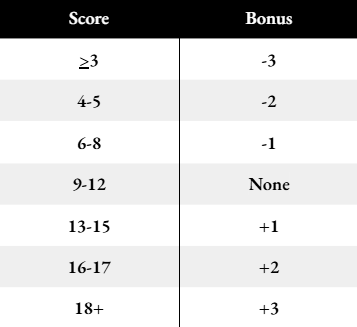
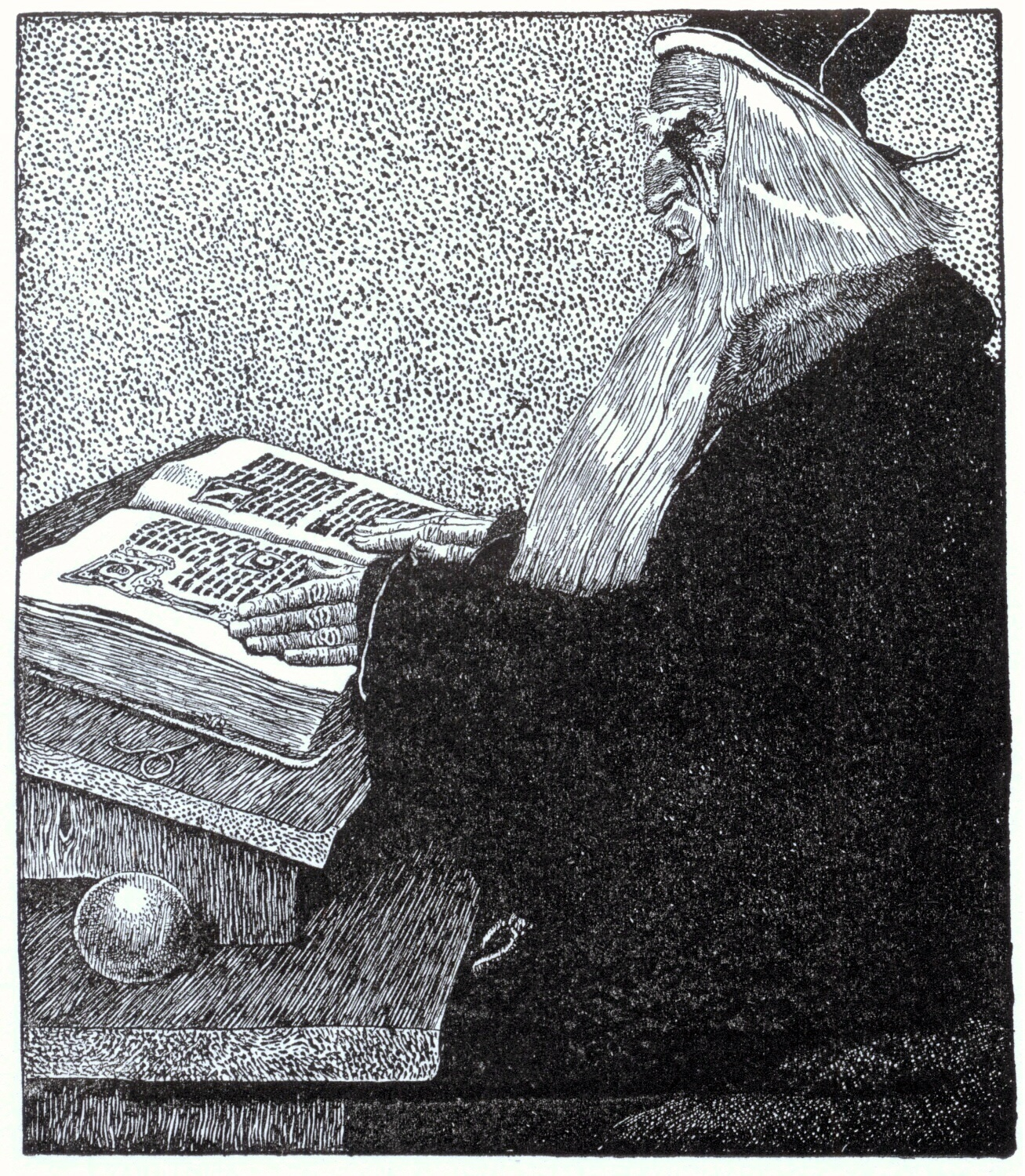


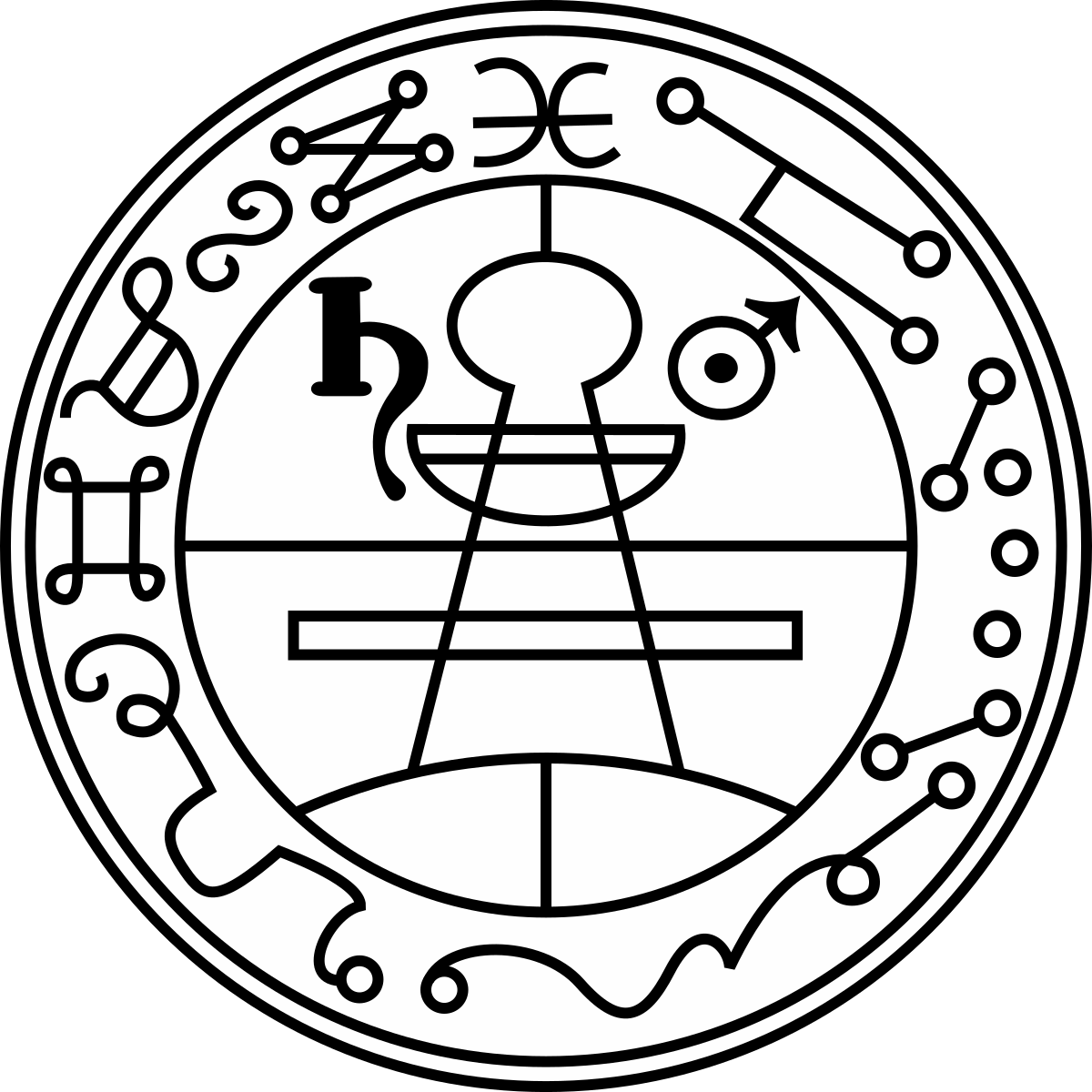

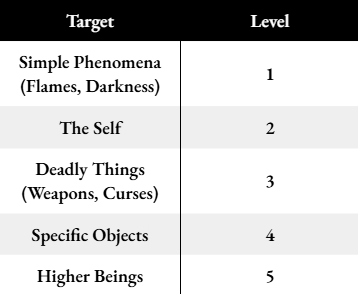

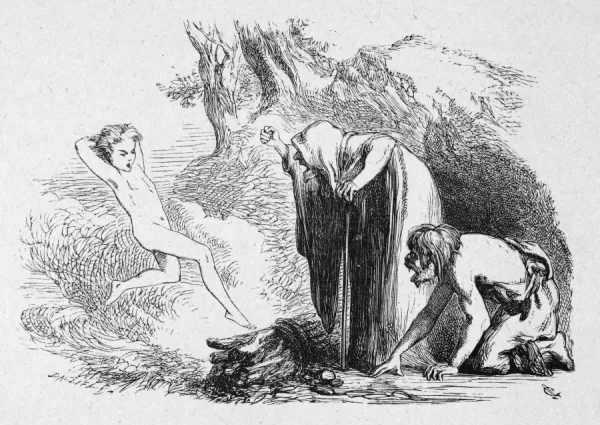
Comments
Post a Comment